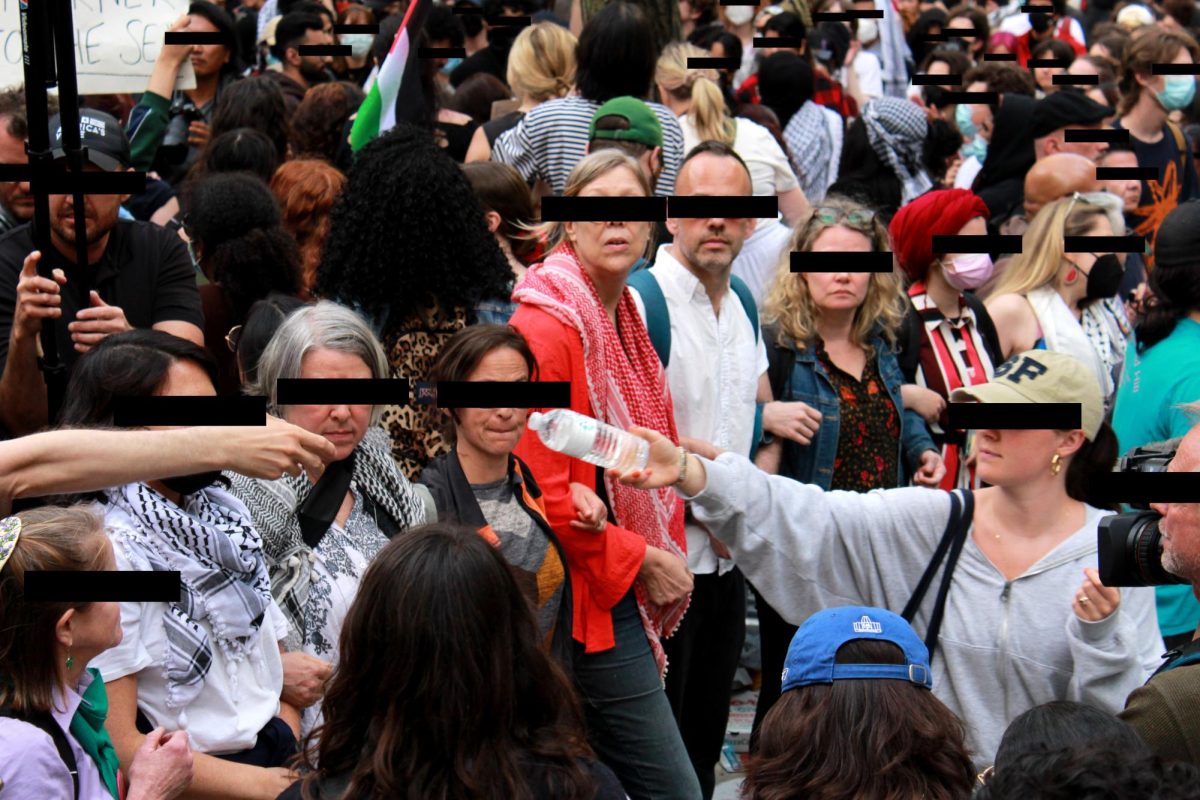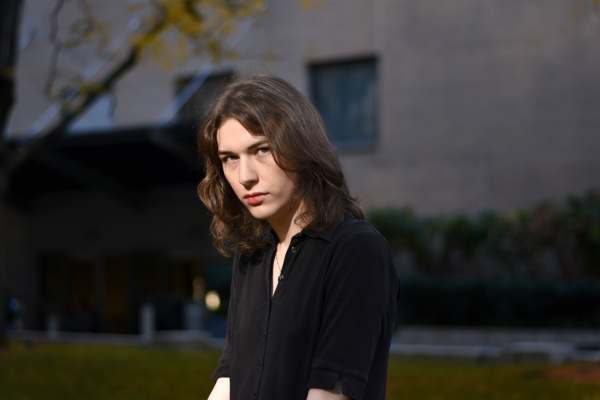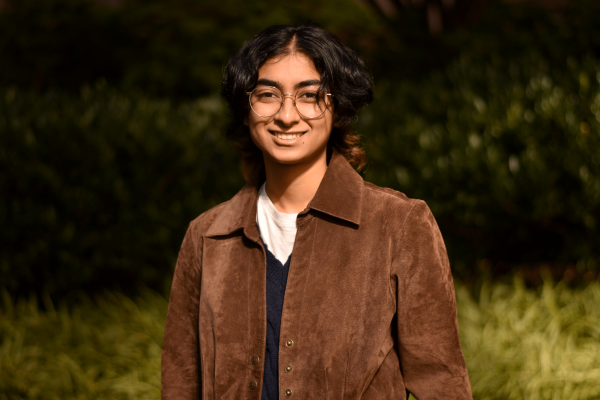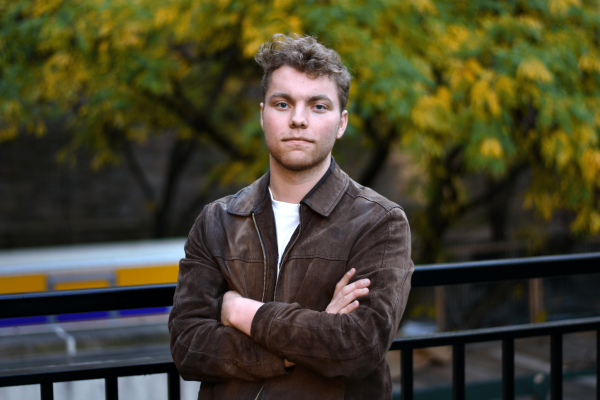An executive order signed by President Donald Trump on Wednesday, Jan. 29, to combat antisemitism threatens to deport international students and faculty who express pro-Palestinian views.
Critics said the order violates the First Amendment as it will chill speech on college campuses. Others said the move is the latest action in a campaign to suppress campus activism by placing pressure on educational institutions.
The order called on executive agencies to identify “all civil and criminal authorities or actions within the jurisdiction of that agency” to combat antisemitism. The order also called on educational institutions to “monitor for and report activities by alien students and staff,” which might be grounds for their deportation.
Wiley Martin, Fordham Law School ’26 and president of Fordham’s National Lawyers Guild, said he and his peers believe the order was targeted at people at colleges and universities who protested against Israel’s military actions in Palestine.
“Consistent reaction has been immediately identifying it as something aimed at repressing speech and aimed at college protests,” Martin said.
The order called on executive agencies to identify “all civil and criminal authorities or actions within the jurisdiction of that agency” to combat antisemitism.
Martin clarified that as a law student and not a lawyer, his statements do not constitute legal advice. He suggested that anyone who is concerned they may be affected by Wednesday’s order should seek counsel from a lawyer.
According to Lamya Agarwala, supervising attorney for the Muslim civil rights group Council on American-Islamic Relations, canceling visas for political speech violates the freedom of expression enshrined in the First Amendment.
“It feels so blatantly contrary to what we understand to be free speech, anti-discrimination laws, so many existing principles,” Agarwala said.
The “blatant” violation of principles may be the point. Agarwala suggested that, in addition to threatening activists, the order is meant to put educational institutions under pressure.
“It’s scare tactics. They’re coming at these universities, they’re putting universities in a very tough position, where universities are going to feel obligated to comply with things that may be unlawful, and may be in tension with their existing obligations to protect their students,” Agarwala said.
For Agarwala, the efficacy of the order hinges on the degree to which schools such as Fordham comply with demands to monitor and report the activities of their students.
“I think the universities are going to be a key battleground to see whether or not the executive order is effective,” Agarwala said. “It does rely on institutions, to an extent, to cooperate with this federal executive order for it to be effective.”
As a private institution, Fordham has the First Amendment right to permit protected speech on campus. Fordham also grants students the right to free expression and non-violent protest, according to the Student Handbook. Alex Morey, vice president of campus advocacy at the free speech advocacy group Foundation for Individual Rights and Expression, said Fordham needs to fulfill those obligations and refuse to censor the political speech of its students and faculty.
“Fordham has to stand strong and say ‘no, we’re not going to break the promises we’ve made to our students and faculty,’” Morey said.
“It feels so blatantly contrary to what we understand to be free speech, anti-discrimination laws, so many existing principles.” Lamya Agarwala, Supervising Attorney for the Muslim Civil Rights Group Council on American-Islamic Relations
Morey drew a distinction between political speech critical of Israel and unprotected speech that promotes antisemitic violence. She said that the former category, even if offensive to some people, is protected by the Constitution.
“This very broad definition of antisemitism that the government has recently been promulgating, suggesting that anyone who is a quote unquote ‘sympathizer’ of Palestine or Hamas, is suddenly committing some kind of crime. No, they’re just engaging in protected expression,” Morey said.
That said, Morey is aware that colleges and universities face a double bind: risk antagonizing an aggressive executive branch with millions of dollars in federal funds on the line or possibly violating their students’ civil liberties — and be liable to lawsuits.
“It’s going to be very interesting to see how schools are interpreting their dual obligations here with this incredibly scary existential looming threat while also knowing they have these other free expression obligations,” Morey said. “I do not envy college administrators right now.”
In response to a request for comment to the Office of International Services, Bob Howe, associate vice president for media and public relations, wrote in an email that the university is not ready to publicly address the order.
“The University will need time to understand the orders and their implications: any response now would be premature and/or speculation. Fordham will let the campus community know what plans the University is making, or what actions it is contemplating, as soon as it is possible to do so with some degree of certainty,” Howe wrote.
Martin called on Fordham’s deans and administrators by name to step up and resist the Trump administration.
“It begs the question for those in power at institutions like Fordham,” Martin said. “Something they should think about is what is best for our students, what is best for our society and the answer to that question is not always to just follow the law … Sometimes you do have to do things that break the law. You do have to disobey authority.”
“Sometimes you do have to do things that break the law. You do have to disobey authority.” Wiley Martin, Fordham Law School ’26
Beyond the looming fight over campus free speech, Martin saw other threats in the order’s language. He worries Trump will use similar tactics to target other forms of dissent.
“He’s asking every executive department and every agency to submit a report identifying all civil and criminal authorities within the jurisdiction of that agency, which to me that’s kind of one of the more scary parts of it,” Martin said. “It’s not going to stop at people who he identifies as antisemitic, or in solidarity with Palestine, it’s going to be people who are in solidarity with trans people next.”
Agarwala warned that the White House could aim to socially criminalize vulnerable groups by promoting discourses labeling those groups as violent and dangerous.
“These concepts of national security, public safety, through these lenses of white supremacy, it attributes categorically ideas of dangerousness to particular people, for example, people who aren’t citizens, for example, people who speak on a particular issue, and then targeting those people either for immigration consequences or criminal consequences or other consequences,” Agarwala said.
The executive order gave 60 days to executive agencies to issue reports on their capacity to enforce the order. It also directs the Secretary of State and Education to inform colleges and universities of clauses in Title VIII regarding Sec. 1182 — “Inadmissible aliens.” The order also clarifies that it affects K-12 schools.




